Day 2: What's going on at Lahore Literary Festival 2020
We're heading in to Day 2 of the Lahore Literary Festival!
The opening ceremony of this year's LLF happened yesterday, kicking off with Qawwali and then Razi Ahmed delivering the Keynotes addresses.
Day 1 was a success as a packed hall greeted 2006 Nobel Prize winner Orhan Pamuk for his session with Ahmed Rashid. You can check our updates for yesterday here.
Stick with us as we keep you updated in real time about whats happening at LLF 2020. You can also check out the complete schedule here.
05:00pm : Time to head out!
And it's a wrap for Day 2! Join us tomorrow as we update you on the last day of Lahore Literary Festival!
04:14pm : Punjabi Sangeet

04:11pm : The global lure of Turkish soap operas
Navid Shahzad, author of Aslan’s Roar: Turkish Television and the Rise of the Muslim Hero, sits in conversation with Fifi Haroon in this session moderated by Adnan Malik.

Says Shahzad, "The focus of any program that you see is the family in Turkish drama industry. They take something specific and universalise it."
"Being a Muslim country, showing the religious values, the maulvi is respected, but at the same time the younger generation live a life akin to the western world. Turkey is on two continents. While the European part is just a footprint, but the cultural aspect of the west is still there."
04:00pm : Bigotry Brigade
Audrey Truschke, Nitasha Kaul, and Vali Nasr sit on a panel moderated by Victoria Schofield to discuss the question, "Where is India headed?"

Schofield starts off the session saying, "The discussion title is very provocative so lets not make this about India bashing but rather where's India headed and what Pakistan thinks about it."
Says Audrey, "We're seeing a rise in ethno-nationalism across globe and rise of Islamophobia as well."
03:06pm : Book Launch for New Kings of the World
Author Fatima Bhutto sits with Fatima Arif to discuss her latest book.
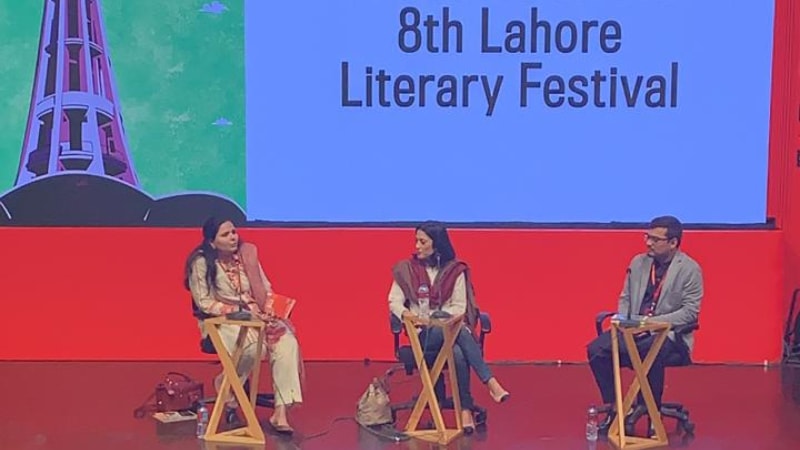
Says Bhutto, "Part of the mandate of this book was that I had to talk about globalisation and had to talk about it globally. So I chose Peru, where there is a subculture that is obsessed with Bollywood. But it’s mainly delegated to Peruvians that come from the high culture, but they tell me that they don’t see themselves in Hollywood. But when they watch Bollywood, they understood the family relationships reflective of their culture... Think of the smallest Bollywood actor in India, and he’ll have a following in Peru."
03:00pm : Hallagulla Reading Set
Daniyal Noorani, Musharraf Ali Farooqi, Baela Jamil, Mariam Tareen and Irfan Bokhari sit in a panel moderated by Hira Azmat to talk about early childhood Urdu books.

Says Noorani, "There isn't much childhood Urdu material. Parents have to have fun too because if they aren't then doesn't serve the purpose."
Mariam Tareen mentions, "I would really like original Urdu stories. Not translated. If we have story lines in Urdu about children told in their language, they'll love it. It's not the language, it's just the way it's presented, or not."
02:52pm : State of Communication
Hina Rabbani Khar sits in conversation with Vali Nasr to discuss, "Pakistan’s role in a divided Muslim world," in a session moderated by Farhan Bokhari.

Says Hina, "Ever since I was born I've heard about how we're well placed geo-strategically. But we've over used this. We never use this leverage for economic empowerment. Malaysia for me is a smart Islamic player. Pakistan is not because they want to be part of every discord but not of economic future."
Vali Nasr, "It's important what Hina says. A country should not base its strategy and vision on false assumption. There's a false assumption prevalent in Pakistan about the unity of the ummah in the Islamic world. And that doesn't exist - it doesn't exist on many many levels."
According to Rabbani, "I look at dissent more as diversity and Pakistan needs to really be able to accept and hug its diversity. We have diversity in our geography, culture, language, and in our people in terms of what they associate with their identity. Since the last several decades we have tried to enforce this ideological mantel over people and told them that they can only be patriotic if they fit a certain idea."
She adds, "Any theocratic tendencies have not served this country - and they have not served this country ever. We look at India self destructing and love to talk about that but we never look at ourselves and try to not repeat the same mistakes."
01:38pm : Critical concerns for Pakistan in the years to come
Former editor of Herald, Senator Sherry Rehman, sits in conversation with Shahid Zahid.

Says Sherry, "Media freedom is very important in any democratic dispensation. Right now, sadly, the freedoms are receding."
For Rehman, "Climate crisis is a personal pet peeve. Pakistan is not taking adequate measures to challenge it. We have a severe water crisis here. In five years from now we'll have systematic drought."
01:37pm : Book Launch for P.S. Pestonjee
Author Arif Mahmood sits in conversation with Maniza Naqvi about his book which chronicles the life of a 91-year-old Parsi in Karachi through photographs.

"For me this became an essay of somebody who is fading away. The process of fading away is very close to me, this process of impermanence is very tough," says Arif Mahmood.
He adds, "When you're repeatedly visiting a place you have to look at things differently even as a photographer. When I enter a house, it's not longer a city being documented, it's a personal space."
01:36pm : Hum Dekhenge
Aitzaz Ahsan, Zehra Nigah and Noman-ul-Haq sit in a discussion on how Faiz’s poetry is transcending borders and languages, and firing people’s movements which is moderated by Salman Akram Raja.

01:30pm : Book Launch for My Sister, the Serial Killer
Nigerian Man Booker Prize longlisted novelist Oyinkan Braithwaite sits in conversation with Aysha Raja about her book.

Says the author, "There was no way for me in my room writing this book to imagine that it would get be the best seller book in Pakistan. I wasn't even dreaming so it's been an incredible year."
About the book she says, "The story is about two sister, the older sister is the protagonist, at the start of the book she's coming to terms with the fact that her sister is a serial killer and trying to figure out how to handle this development."
She adds, "Why murder? I didn't think of it as a murder novel when I was writing it. There's a lot of death in it but that wasn't my primary focus. It's a book about family and the fact that she's a serial killer was a tool i was using to further my objective. I wanted to look at how society views women, and beautiful women."
12:33pm : Spotted Adnan Malik!
We love how Cake actor Adnan Malik never misses important events like LLF.
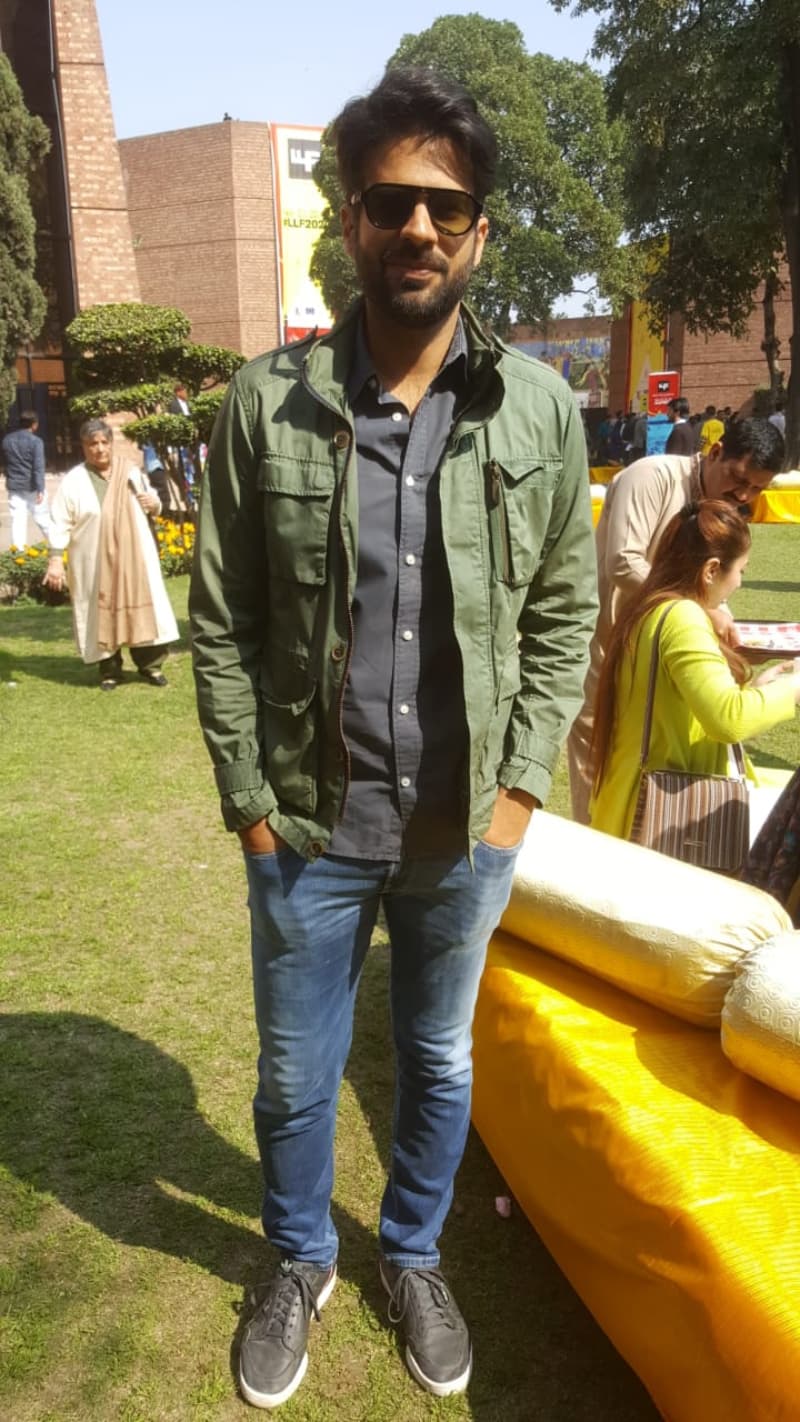
12:12pm : Caught some qawwali!
Stepping out for a breather - next set of sessions start at 1:30pm - and of course there's more qawwali to enjoy!

11:41am : Book launch for Suncatcher
Sri Lankan writer and Man Booker Prize short listee, Romesh Gunesekera sits in a conversation with Maarya Rehman to discuss his book.

Says Romesh, "Writers don't represent their countries anymore. They, in fact, challenge the borders, the very idea of a country. They're transnational... There are some writers who write to become a writer. I write a book and want people to know my books more than me."
11:22am : Terror in Kashmir
Arif Nizami and Nitasha Kaul sit in a panel moderated by Khaled Ahmed.

Says Kaul, "I hesitate to be a native informer and I hesitate because I’m a Kashmiri person... Personal stories are important, but it’s equally important to zoom out and look at the Kashmiri’s situation and what it is."
"I don’t want to talk about the personal. Because we need to move beyond the personal tragedies, otherwise it would be a competition of victimhood. My emphasis has always been about let us find ways to see Kashmiris as a collective have been victims over all, amongst other things competing nationalisms."
11:19am : Bombay to Karachi
Nour Aslam, Samina Iqbal and Zehra Jumabhoy of the Courtauld Institute sit in a panel by Salima Hashmi talk about "Exploring art and collectorship postindependence."

11:12am : Hijabistan
Sanam Saeed sits in conversation with author Sabyn Javeri to discuss, "The all-encompassing veil that entraps some women—but it can liberate others."

Says Sabyn, "In our times hijab has become such a controversial topic that I thought it would be interesting to look at it like a metaphor, not just as a garment but as a veiled divide between men and women, public and private spaces, the inner and outer world. It is metaphorical for what we hide and what we show people, sometimes through our clothes but there's a lot more behind it."
According to Sanam Saeed, "Everyone takes on a different character to go through life. We forget that these are the choices we made. You could have been anything you wanted but you take on these roles and i'ts important to always connect with who you are. That's where the hijab comes in, where when you're alone you connect with yourself."
Adds Sabyn, "Something that's really close to my heart is the way women tell their stories. It's important to me to try and tell the story which tries to find out where women find their strength from. It may not be about a strong person but the fact that they are trying to draw strength from whatever circumstances they're in is something I'm very passionate about."
11:05am : Book signing by Orhan Pamuk
Just saw the 2006 Nobel Prize winner Orhan Pamuk signing books in Hall 1. You know we had to go!
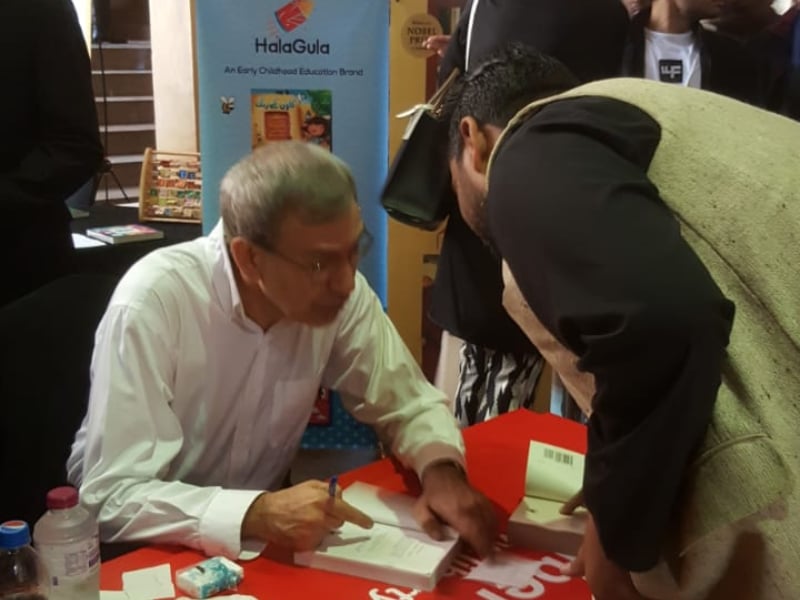
10:34am : Ode to the Stanza
Mehvash Amin, Afshan Shafi, Ilona Yusuf, Marianne Jungmaier and Athar Tahir celebrate Pakistan’s English-language poetry with Haris Khalique as moderator.

10:24am : Of Princes and Patronage
Audrey Truschke, Mehreen Chida-Razvi, and William Dalrymple sit on a panel with moderator F.S. Aijazuddin to discuss and explore Mughal-era art and aesthetics.

10:03am : Women on Wheels
Salman Sufi, of the Salman Sufi Foundation that launched the Women on Wheels movement, sits with Syeda Henna Babar Ali and moderator Nayab Jan to discuss how WoW made an impact.

Sufi reveals he, "thought of giving women the independence and not have them wait for their sons or husbands to take them around. Saw around us at work that women weren't mobile and depended on some man in family to help them... Mobility also a reason women don't work or are not career oriented."
Henna Babar added, "We have been told to control our egos since we're born. We are less egoistic than men when it comes to financial decisions."
On role of private sectors she said, "Private sectors will only do something that makes financial sense. Having women work in private sectors creates openness on the floor and management. Breaks the all boys club. Brings a perspective to that club also. In financial decisions also women less emotional than men."
10:00am : Mining Conflict
Oyinkan Braithwaite, Aysha Baqir, Romesh Gunesekera, and Bilal Tanweer sit on a panel moderated by Monocle 24 editor Georgina Godwin to discuss "Writing on Life in a Turbulent World."

Questions Bilal Tanveer, "What happens if you don't ask questions that usually frame events such as bomb blasts, questions that are related to security. What if we think about ordinary people and how they are affected by these things. On how life continues to go on. One of the main questions my book investigates is really the question of story telling itself. What kind of stories do we need in order to make sense of the world in times of crisis."
Says Oyinkan Braithwaite, "This is my first time in Pakistan and I'm really excited. I am the author of My Sister the Serial Killer. It's a book that I wrote in a kind of frenzy. It was crazy and I wrote it in a very short amount of time. I was desperate and about to turn thirty and it was not looking good - I'm glad I wrote it."
09:33am : We're a little early
We didn't wanna miss the early sessions so ended up getting here a little too soon. Oh well, the view is great isn't it?






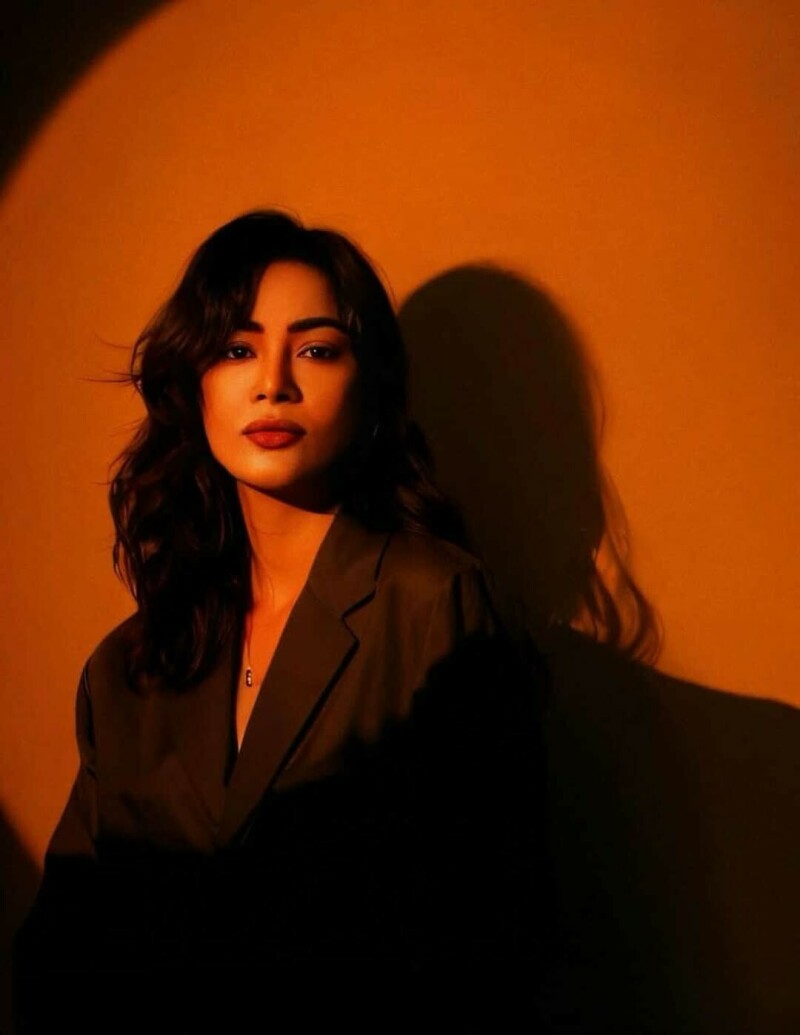
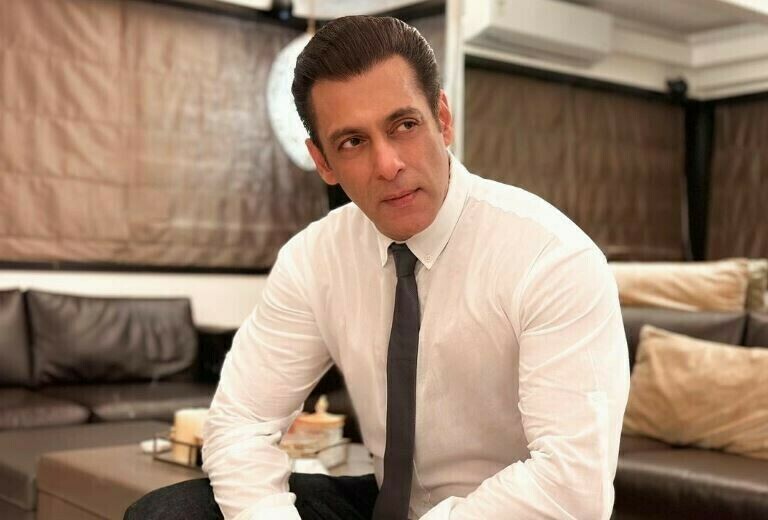
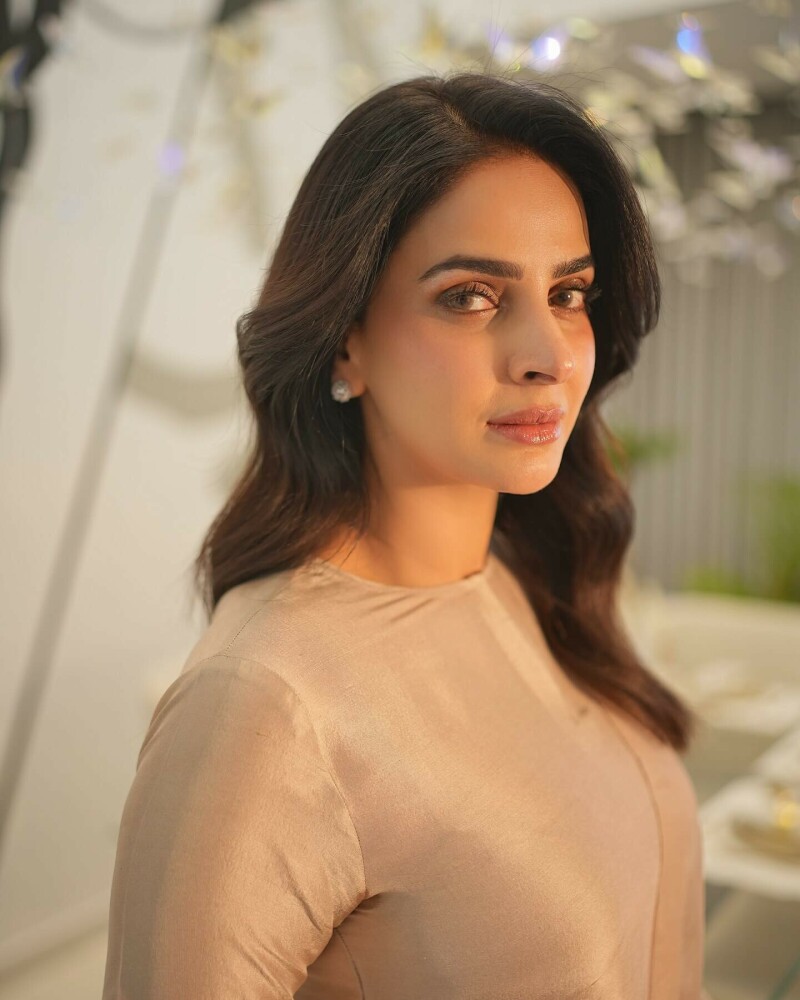
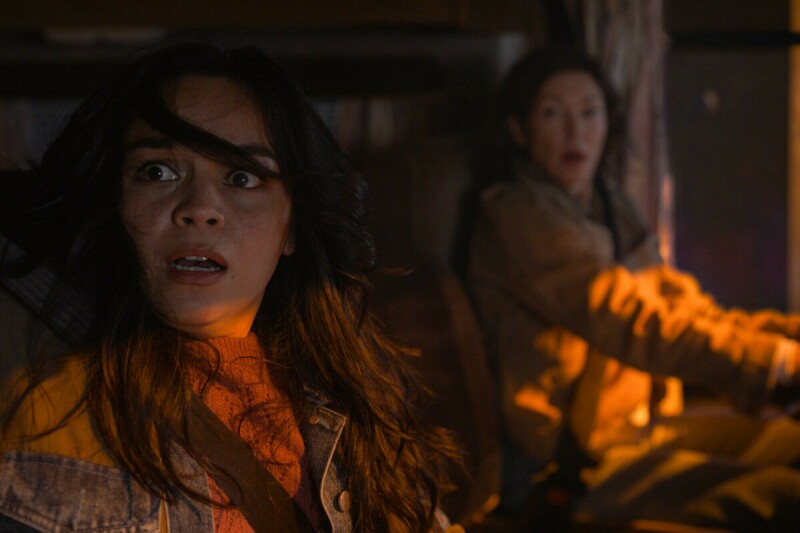
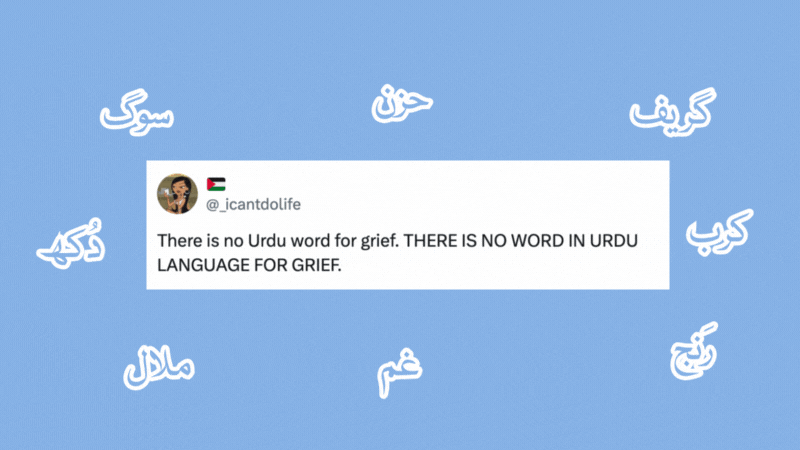
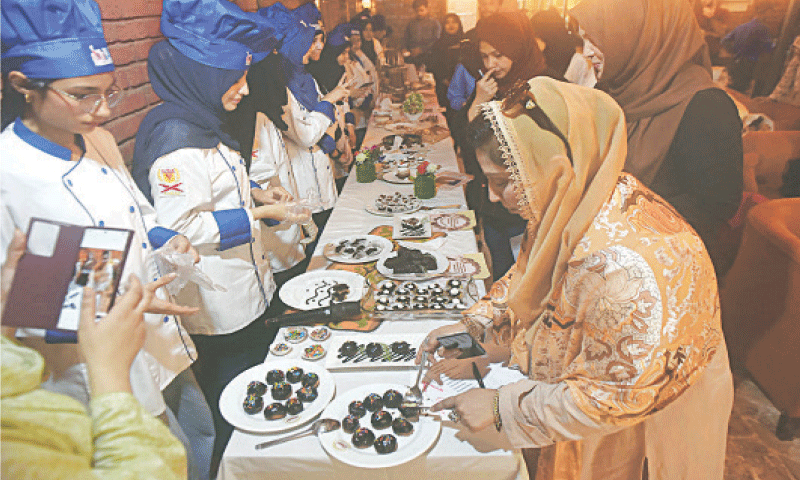
Comments